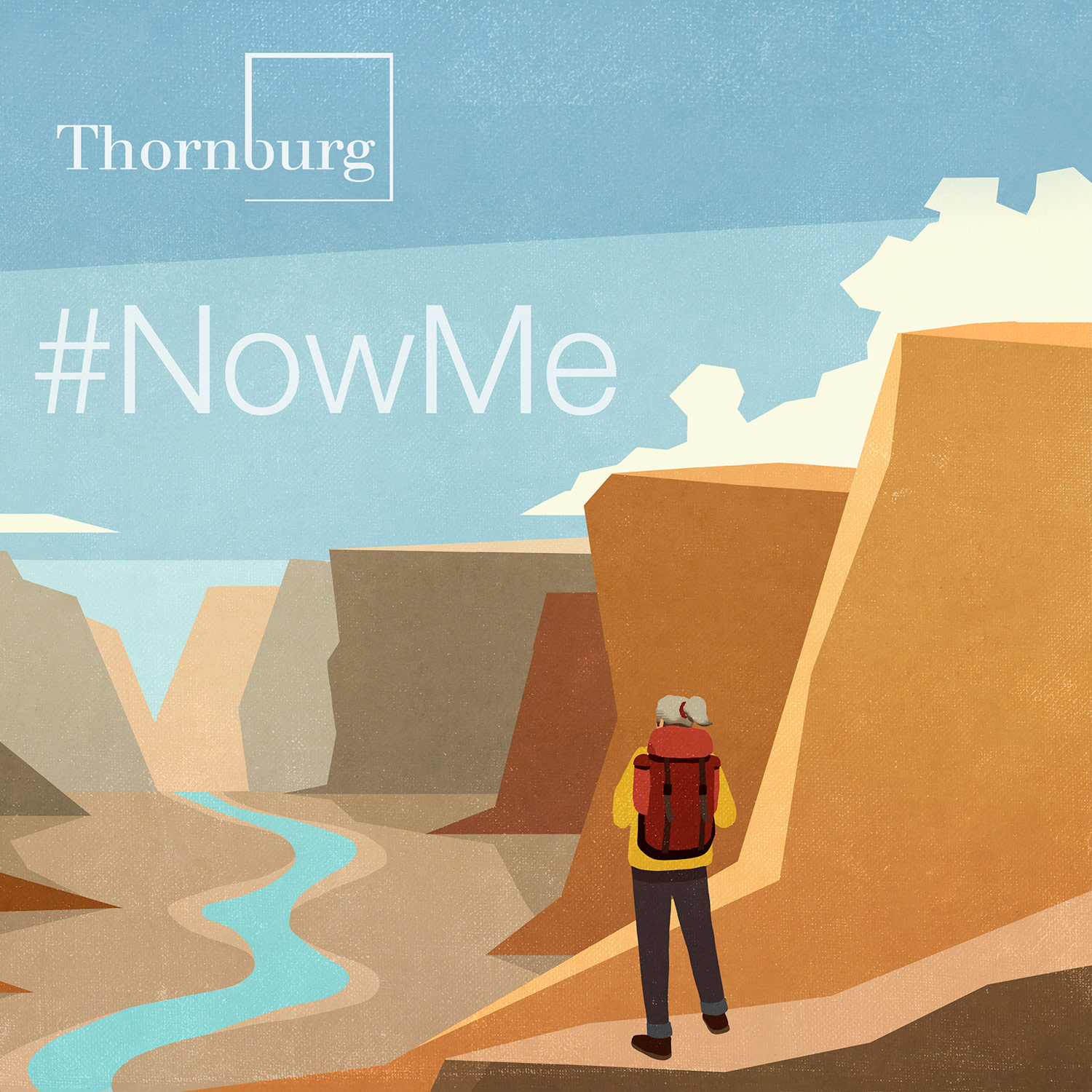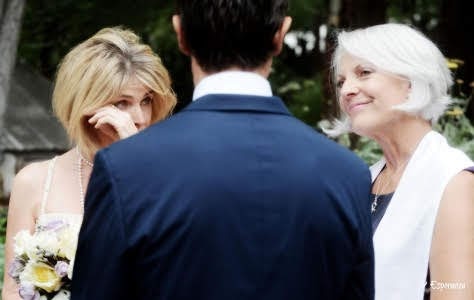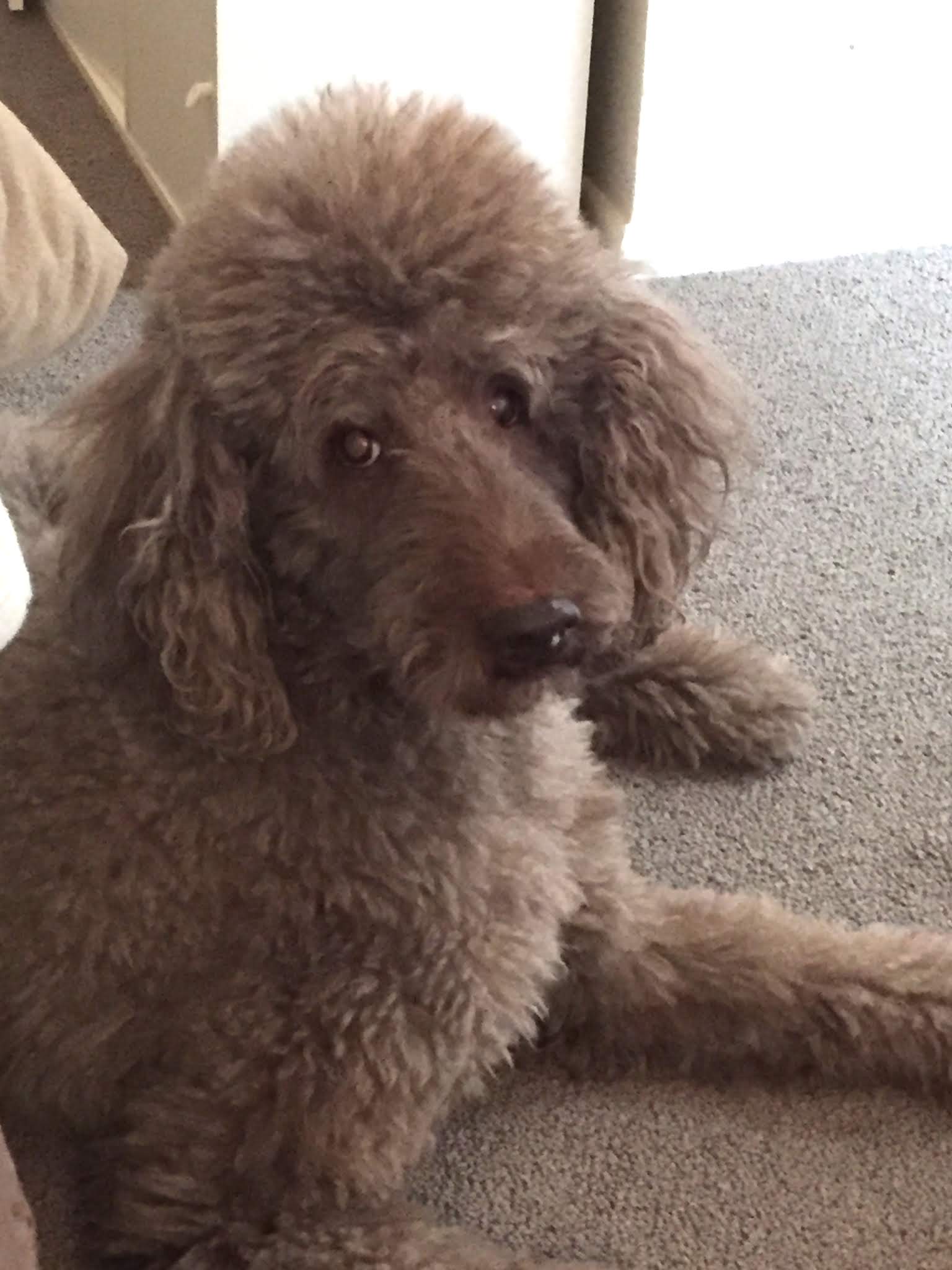My greatest solace throughout life has been writing. Recently, I was going through a box of papers and photos retrieved from my mother’s home before we sold it, and came upon a little book I made of poems when I was 12. It was a school assignment. I’d taken lids from my father’s King Edwards cigar boxes, covered them with green burlap, pasted three stylized felt flowers on the front, (all certainly with help from my mother) and riveted together the binding (no doubt with assistance from Dad).
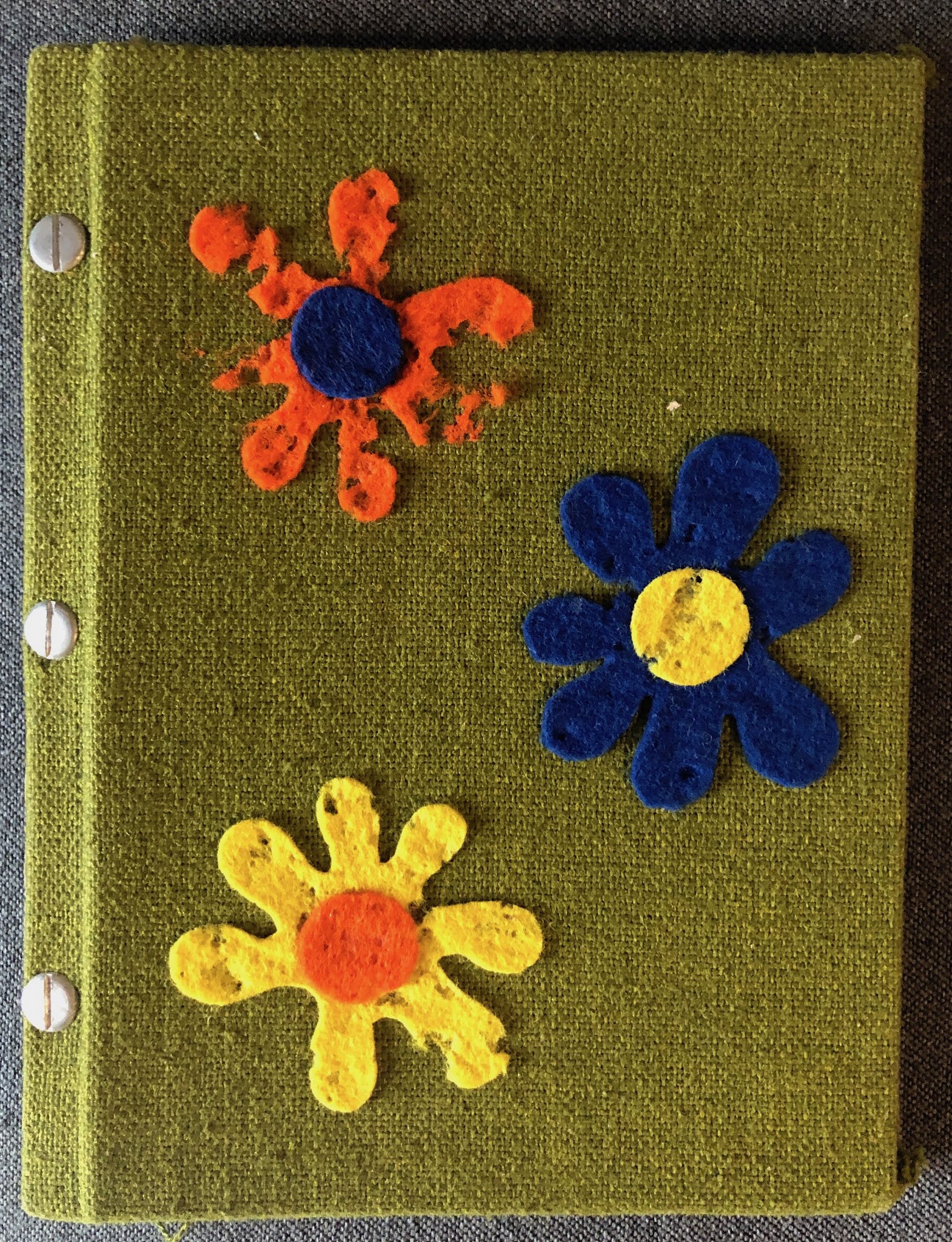 |
| My first book, Poems for Pleasure. The moths
must have gotten to the felt flowers, alas. |
On the now-brittle and browned pages I’d written in pencil some of my favorite rhyming poems by famous authors. Called Poems for Pleasure, the little book included a cover page attributing the book to “The Green Elf Publishing Co., Fort Worth, Texas, All Rights Reserved, Copyright 1968”; a preface dedicating the book to my parents; acknowledgments thanking the poets whose works I’d cadged; and a table of contents, wherein poems by Hollie Walker were sandwiched between those by Robert Louis Stevenson (“How Do You Like To Go Up In A Swing?”), Christina G. Rossetti (“Who Can See The Wind?”) and others. I had illustrated most poems with childlike drawings using colored pens.
On the frontispiece (I was determined to create a real book), in red ink in very small handwriting at the bottom right-hand corner was an “a.” I stared at it for a moment before realizing it was my grade. I’d gotten an A! This still pleases me, even today.
I am still writing poetry, and collecting others’ as well. I have whole notebooks of poetry that I turn to for my own pleasure—what an apt title that was, Poems for Pleasure!—and that I use in my work as a minister.
Such things are powerful reminders of how life goes around in circles.
For example, I know so many people who, post-50, have found true love once again in someone they knew in college, or high school, or even kindergarten. One of my clients was in his 50s when a neighbor set him up on a date with a woman it turned out he had known in graduate school—three decades before, in a state thousands of miles away. They spent 23 years together before she died. Another female friend whose life has been incredibly tragic—her husband died in the first year of their child’s life—in her 50s reconnected with a high school sweetheart; now, together, they are raising her child and helping her aging mother.
For me the circular path of life has been most evident not in love affairs but in work. Here is just one example: I began my career during college in radio news and voiceover work, which I left behind in my early 20s. I found myself on the air once again in my mid-40s. Somewhere around 50 I left that work behind again, only to find myself again doing some voiceovers and recently, hosting a podcast.*
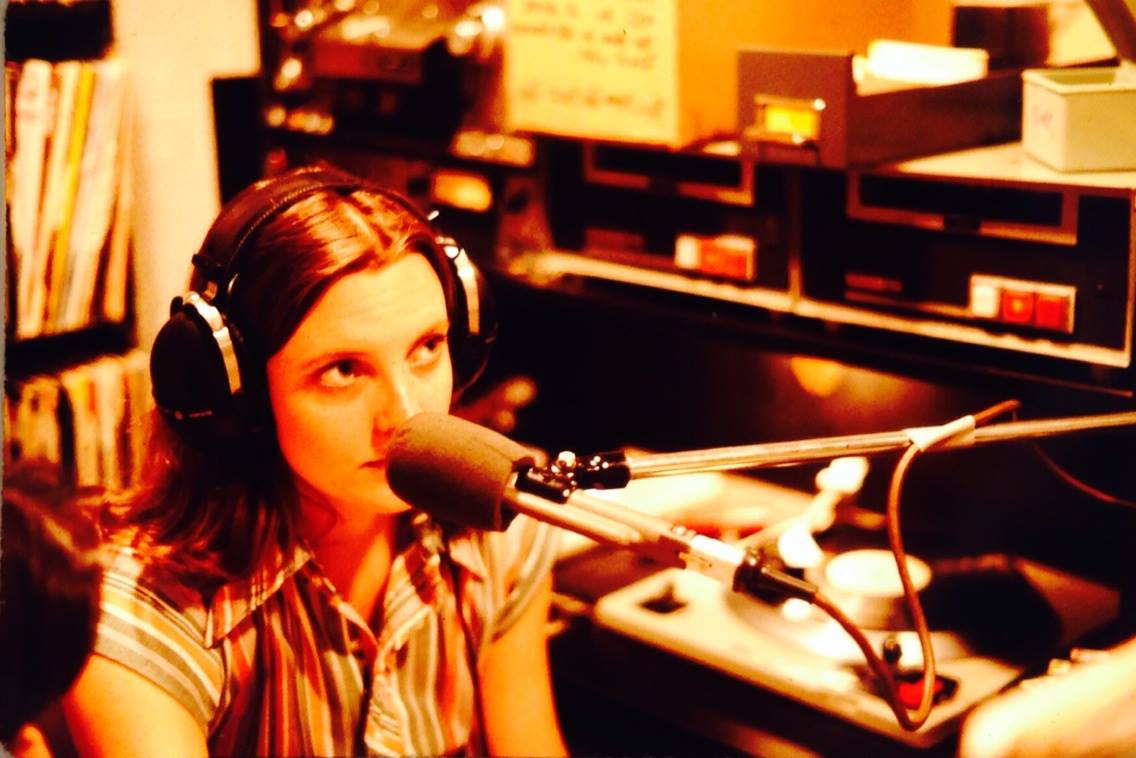 |
| Me on the air at KNTU-FM, Denton, Texas, circa 1973
Note the record players in the background! |
In none of these or similar situations did I say, “I’m going to go back and do that radio/voiceover stuff again;” the opportunities just arose, and I thought, “Well, gee, I can do that,” and said yes to the forthcoming offers.
How often has your life taken a “new” direction that instead proved to be circular, a return to something you’ve had or done before and now find again on your plate? Did you ever feel you were getting a second chance to do something differently than you did it in the past—that maybe, even, there was some sort of spiritual meaning inherent in the circle?
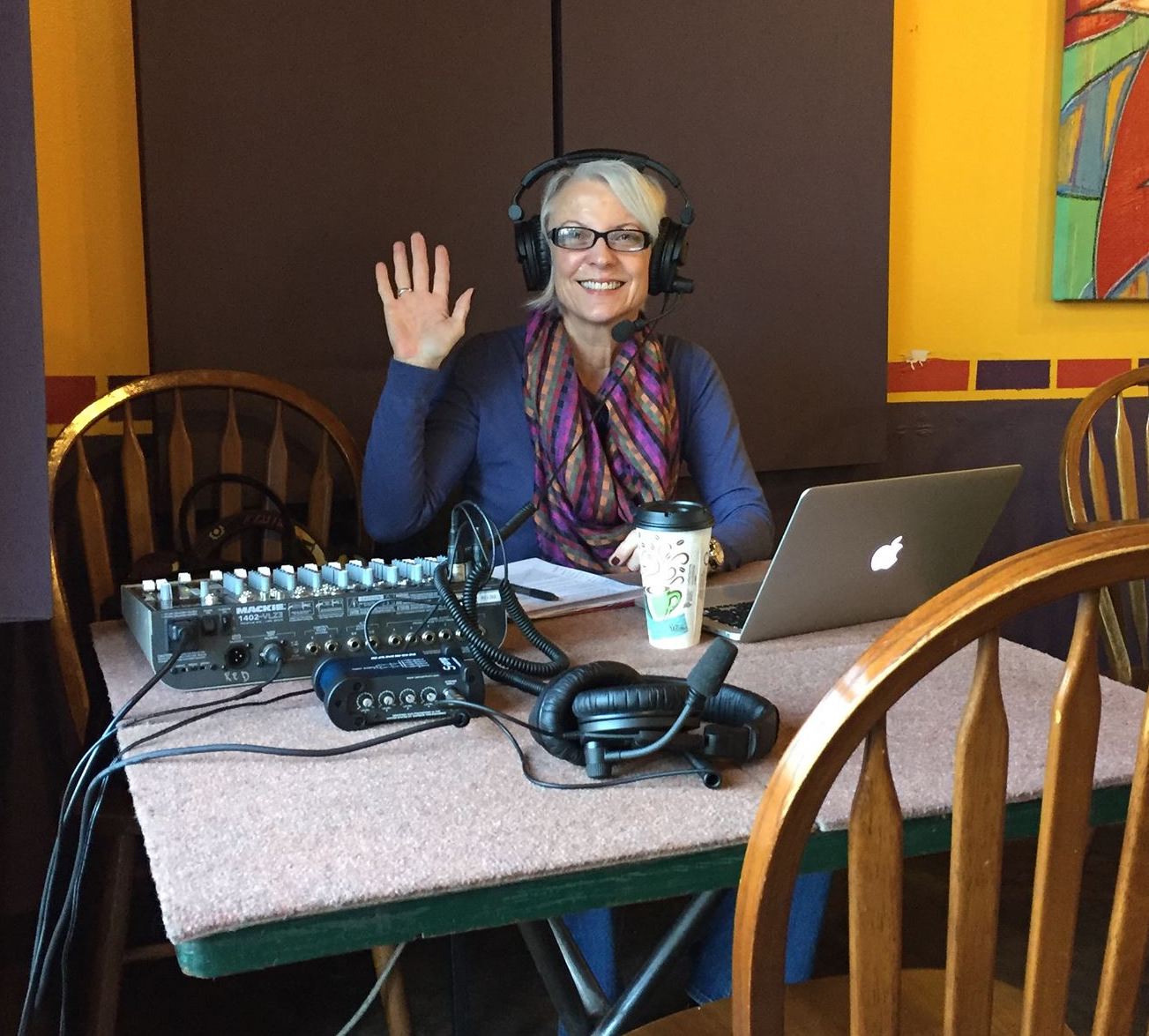 |
| Substituting for Mary-Charlotte Domandi as host of the Radio
Cafe, then on KSFR-FM in Santa Fe, just a few years ago |
For me, these moments of circularity are magical unfoldings, synchronicities in the Jungian interpretation, events that are not accidents at all but somehow seem foreordained, natural, developments even perhaps necessary for my growth.
There is and can be so much tragedy and suffering in our lives, as so many people are experiencing now. The numbers of people who have died from coronavirus are staggering, and sometimes multiple members of biological families and chosen families have died. How are we to interpret these events?
When I worked as a chaplain, many times people asked me, “Does God hate me? Why did this happen to me?” I don’t believe in a wrathful God, and I’m not the sort of person who believes that we can know the answers to the questions of “why” that so naturally plague us in the wake of tragedy. I believe we must instead struggle toward acceptance, and look for hope in the unfolding afterward. I believe in staying in the suffering as long as is necessary—that is, not trying to avoid the grief, sadness or anger we feel—but at the same time, attempting to be curious about and awake to the changes that unfold afterward.
What is unfolding for you, right now? What growth might come from the experiences you are having, painful or pleasant? Is there some magic happening in the midst of it all?
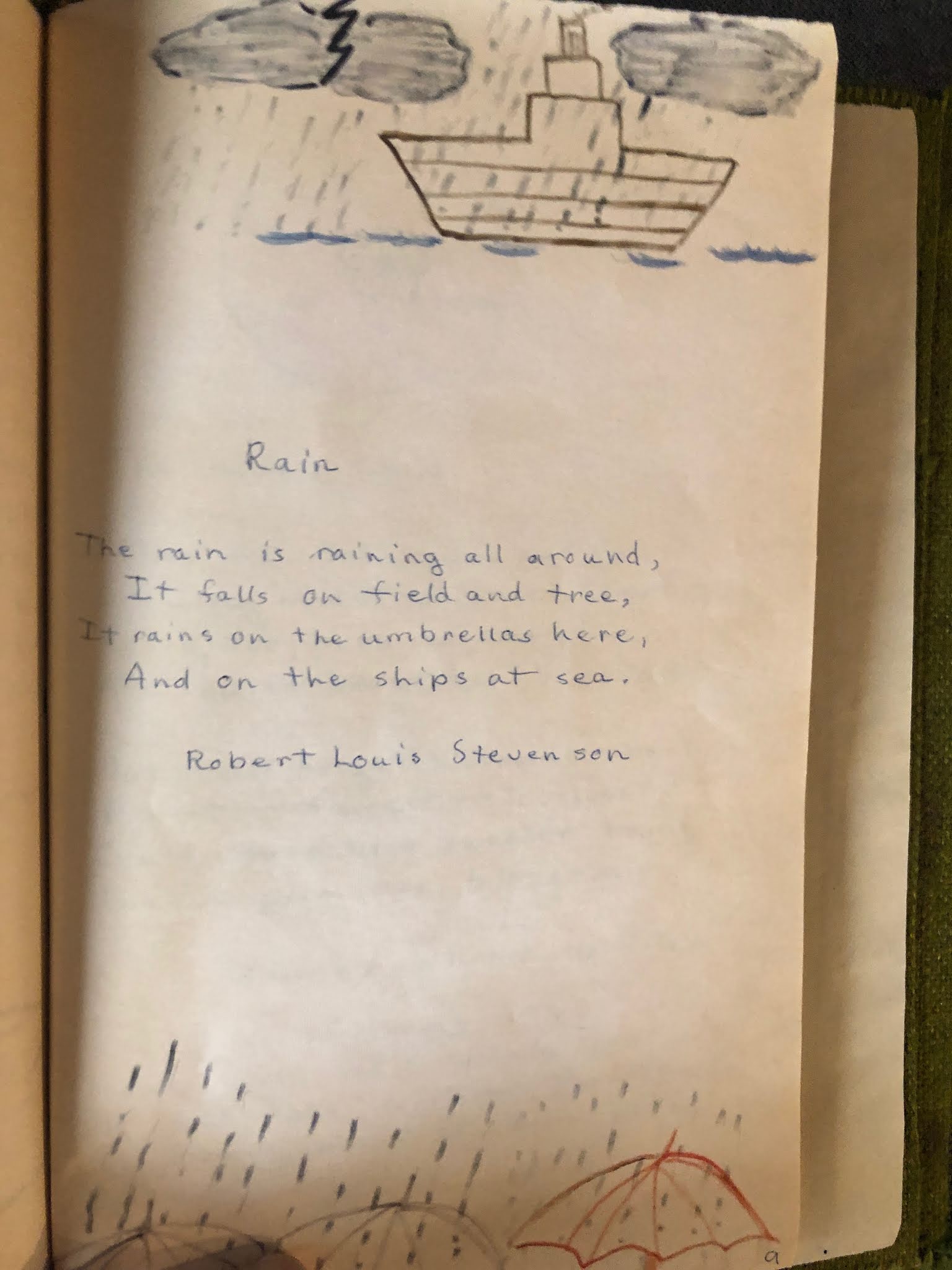 |
| A favorite from Poems for Pleasure |
As I mentioned here, my beloved dog Jackson died last week. Of course I have been deeply grieving, but I am also asking myself those questions, because I know that despite the sadness of his loss, other feelings will arise and resulting changes of circumstance may lead to unexpected developments. I find that besides trying to stay in the feelings of grief, to really experience this loss deeply, I am also awash in gratitude for the time I had with Jackson and the things he taught me. And I can feel at the selvage of my heart a tiny sprig of hope in the unfolding ahead.
Whatever your life is offering you right now, may you fully experience your feelings. May you engage in the struggle for acceptance. May you begin to believe there is magic happening in the midst of it all, and feel a tiny sprig of hope in the unfolding ahead.
💙💚💛💜
*About that podcast I mentioned: I am the host of #nowme, featuring Jan Blakeley Holman, director of advisor education for Thornburg Investment Management, a financial services corporation based in Santa Fe. The podcast addresses the financial needs of women and how their financial advisors can best serve them. You can take a listen on Apple, Spotify, Google podcasts, or your favorite audio provider, or at Thornburg.com/podcasts. Or just click here: https://www.thornburg.com/insight-commentary/podcasts/
